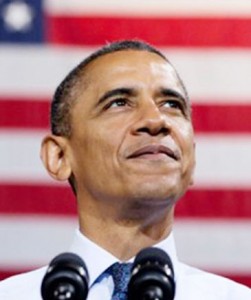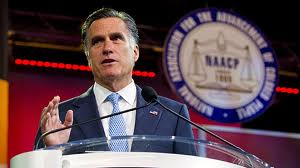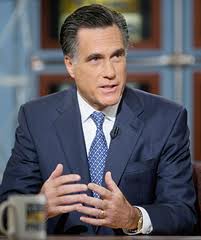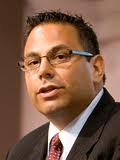Kevin Chavous, a senior advisor to the American Federation for Children, criticizes President Obama in this recent Washington Post op-ed for not supporting the Washington D.C. voucher program and suggests a new approach for Term 2:
I have long been a supporter of the president, and I continue to applaud many of his education initiatives, including his embrace of charter schools. But his administration’s opposition to giving low-income families the full slate of educational options — captured when he zeroed out funding for the program in his budget this year, despite the earlier deal in which he agreed to reauthorizing the program for five years — is unacceptable. ...
These roadblocks are part of a long history of the administration’s resolute opposition to the voucher program, from Education Secretary Arne Duncan rescinding 216 scholarships in 2009 to the department ignoring the positive results of a gold-standard study, conducted by its own Institute of Education Sciences, that found that D.C. voucher students graduate at a rate of 91 percent — more than 20 percentage points higher than those who sought a voucher but either didn’t get one or didn’t enroll in the program after being accepted. Because of the delaying tactics of the department, a credible — and federally mandated — new study of the program cannot be conducted unless the program enrolls hundreds of new students next year. ...
On many occasions during his first term, President Obama demonstrated an ability to embrace education reforms that help kids, and I expect that to continue now that he has won a decisive reelection. What’s different about this one? This is an easy one: All he and his Education Department have to do is get out of the way and let a successful program work. Full op-ed here.
 President Obama has often called on us to be true to who we are as a people, as Americans. And in his second term, he has the opportunity to transform the education system back to our core - to where parents are primarily in charge of children’s educations.
President Obama has often called on us to be true to who we are as a people, as Americans. And in his second term, he has the opportunity to transform the education system back to our core - to where parents are primarily in charge of children’s educations.
We have paid a price for transferring authority and responsibility for educating children from parents to government entities. With mostly though not always good motives (remember Brown v. Board of Education), we allowed the dream of the government-owned and operated common school to live on despite overwhelming evidence that, in reality, it wasn’t working. A child’s educational destiny continues mostly to be a function of his/her zip code and the competence of strangers who sit on local school boards.
For more than three decades, a long, slow correction of this anomaly in American society has been underway. First, intradistrict and interdistrict transfers began to appear that allowed limited parental choice within some parts of the public school system. Then magnet schools surfaced, offering options such as vocational, talented and gifted, and language immersion programs, and responding to more demands. In 1992, charter schools emerged. Today they account for almost 6 percent of all public schools, approaching 6000 total, and the number grows steadily each year because the demand from parents so far is insatiable.
Thanks to my colleague at the American Center for School Choice, Gloria Romero, a new tool has appeared. The parent trigger empowers parents to make changes to their school when they are not satisfied. Already 20 states have considered the approach and seven have adopted laws.
Private school choice programs continue to gain support, too. And they have done so despite fierce opposition from forces that want to defend market share over a parent’s right to choose. Today, 32 such programs operate in the country. And in recent years, many school choice bills have either been passed by legislatures with Democratic majorities or signed by Democratic governors. Just as important, once enacted, these programs have only grown. No state has repealed a program or decided choice does not serve the public well. Moreover, the doomsday scenarios that opponents consistently forecast for public education systems have never happened.
It’s said you can’t argue with a river; it is going to flow. Parents are going to take back the authority and responsibility for educating their children. The river has been flowing for more than 20 years and the current is gaining speed. It’s time for more Democrats to stop arguing as families assert their fundamental and universally accepted American value that they know the best choice for their children. Democrats need to work in positive ways to transform our system. We need good schools and there’s plenty of room for all types - public, charter, and private.
President Obama has the life experience, as well as the political skills and credentials, to lead this transformation, and to make it less jarring and less confrontational. (more…)
Editor's note: For those new to redefinED, "blog stars" is our occasional compilation of good stuff from other ed blogs (with a newspaper op-ed thrown in now and then, too).
 Huffington Post: In search of the elusive, reform-minded school board member
Huffington Post: In search of the elusive, reform-minded school board member
What most people don't understand is that managing failure is just as hard as managing success. And this is, I believe, part of the reason school boards don't improve schools. Stability and coherence are watchwords in both the high-achieving and low-achieving systems. Administrators want to keep their staff happy and their board at arm's length. In both successful and failing districts, "micromanaging" by the school board is considered a no-no. I recall a woman addressing our board not along ago. "We're not supposed to rock the boat," she said. "But the trouble is that the boat has tipped over and we're lashed to our seats." Rocking the boat is exactly what must be done to effect change -- change, one hopes, that leads to better student outcomes.
I spent most of the last 10 years, on and off the board, pushing for a rigorous curriculum, stopping the disproportionate disciplining of African-American students, and complaining about the over-identification of special ed students (almost a quarter of our student body). But, for the most part, no matter what I proposed -- a new bus route, a paint job for the flag pole, or a curriculum -- I was mostly ignored. In order to get a pile of old lumber and rusty nails removed from the edge of a playground I had to threaten to dump it in the superintendent's driveway! Full post here.
Dropout Nation: The NAACP should listen to Romney (and Obama) on school choice
By embracing an education traditionalist thinking and Zip Code Education, the NAACP is aiding and abetting the damage to black children that it is supposed to defend. By taking money from NEA and AFT affiliates (including the $16,200 picked up by its New York branch from the AFT’s Big Apple unit during the union’s 2010-2011 fiscal year), the association is also betraying its obligations as a civil rights group to oppose policies that promote the same denials of equal educational opportunities against which it supposedly fights. In the process, the NAACP refuses to be a much-needed public policy voice and activist on behalf of transforming a failed system, alienating the very school reformers and black families (especially in urban communities) who are looking to build schools that black children (and all kids) deserve. And by adhering to the thinking of aging members who have a vested interest in maintaining failed ideas about how schools should serve black children, the NAACP has also lost opportunities to gain support from a new generation of African-Americans who realize that education is the most-important key to achieving social and economic equality.
When both Romney and Obama share common cause on systemic reform and on expanding choice, it is clear that the NAACP is on the wrong side of history. Now it is time for it to do the right thing. Full post here. (more…)
Beyond the boos for his vow to undo President Obama's health care overhaul, Republican president Mitt Romney stressed school choice in his speech to the NAACP today, talking up charter schools and suggesting Obama’s ties to teachers unions hampered his efforts to help disadvantaged kids.
 “If equal opportunity in America were an accomplished fact, black families could send their sons and daughters to public schools that truly offer the hope of a better life,” he said, according to his prepared remarks. “Instead, for generations, the African-American community has been waiting and waiting for that promise to be kept. Today, black children are 17 percent of students nationwide – but they are 42 percent of the students in our worst-performing schools.”
“If equal opportunity in America were an accomplished fact, black families could send their sons and daughters to public schools that truly offer the hope of a better life,” he said, according to his prepared remarks. “Instead, for generations, the African-American community has been waiting and waiting for that promise to be kept. Today, black children are 17 percent of students nationwide – but they are 42 percent of the students in our worst-performing schools.”
“Our society,” he continued, “sends them into mediocre schools and expects them to perform with excellence, and that is not fair. Frederick Douglass observed that, “It is easier to build strong children than to repair broken men.” Yet, instead of preparing these children for life, too many schools set them up for failure. Everyone in this room knows that we owe them better than that.”
Media coverage of today's event in Houston is focusing heavily on the negative reaction Romney received for his plans to scuttle "Obamacare." The Republican candidate got a more polite response to his education positions.
Romney noted his support for charter schools as governor of Massachusetts, despite opposition from teachers unions and Democratic lawmakers.He also pitched his plan to allow federal education funding to follow the student to the school of the parents’ choosing, including private schools “where permitted.”
The dig at Obama's education agenda came without mentioning the president’s name. (more…)
If there were any doubt that Democratic presidential politics drove the Obama administration’s decision Monday to keep D.C. Opportunity Scholarships alive another year, Education Secretary Arne Duncan removed it with his tortured statement by way of public explanation.
“The President and I are committed to ensuring that the education of the children currently in the D.C. Opportunity Scholarship program is not disrupted," Duncan wrote. “We remain convinced that our time and resources are best spent on reforming the public school system to benefit all students and we look forward to working with Congress in a bipartisan manner to advance that goal.”
Unfortunately, this has become the go-to talking point for the secretary when asked to defend his administration’s opposition to a scholarship that is helping struggling low-income students in the District of Columbia. Never mind that Duncan’s own agency has determined that the students who take the scholarship are performing at higher academic levels, that the program has strong support from parents, and that Congress has cushioned even any perceived financial impact on traditional D.C. public schools by giving them an extra appropriation. The president simply won’t cross the teacher unions on vouchers.
Rather than acknowledge the political pickle, Duncan is left tripping over his own words and basic common sense. (more…)
 Mitt Romney’s white paper on education, “A Chance for Every Child,” offers laudable support for increased parental choice and for other changes, such as tenure reform, that must occur to improve education in America. Like Obama, Romney wants to leverage federal dollars to move states in the right direction on public school choice, especially the removal of charter school caps and the adoption of open enrollment policies. He also advocates for private school choice “where permitted by state law.”
Mitt Romney’s white paper on education, “A Chance for Every Child,” offers laudable support for increased parental choice and for other changes, such as tenure reform, that must occur to improve education in America. Like Obama, Romney wants to leverage federal dollars to move states in the right direction on public school choice, especially the removal of charter school caps and the adoption of open enrollment policies. He also advocates for private school choice “where permitted by state law.”
But is his plan viable? And will he lead to implement it?
Romney would remove most of No Child Left Behind’s accountability standards in favor of expanded reporting on how schools are different. He would allow states to set their own standards and tests, but print the state’s National Assessment of Educational Progress (NAEP) outcomes on school and district report cards. NAEP brings much value to the discussion of education performance in America, but none to how an individual school district or school is performing because it does not test sufficient numbers or in every school and district. Implicit in this move - away from accountability by achievement measures towards improved information about schools - is that such information is lacking today. But parents are actually quite knowledgeable about local schools’ pluses and minuses and can access sites such as www.Greatschools.org for more detailed information.
So, for this information to be vastly more empowering than it is today, Romney recognizes that school choice would have to be dramatically expanded. That’s especially true for public school choice where, frankly, most of the schools will be for the foreseeable future.
The Romney plan seeks to expand choice primarily in two ways. First, he would convert Title 1 and federal special education (IDEA) funds that go to schools serving economically disadvantaged students. They would become vouchers that the eligible Title 1 and special ed students could take to any other school, including a private school, or even to a tutoring provider or digital school. Second, he would require states, as a condition for receiving these funds, to adopt open enrollment policies and eliminate caps on charter and digital schools.
The Title 1 and IDEA proposal is worthy of consideration. (more…)
 Nobody invoked Ronald Reagan this week and demanded that somebody (Randi Weingarten? President Obama? The local school board?) “tear down this wall,” but two school choice champions got close. Step Up for Students President Doug Tuthill used the Berlin Wall analogy yesterday in a redefinED post about the big-picture trends in ed reform. And in a beautiful coincidence, Robert Enlow, president and CEO of the Friedman Foundation for Educational Choice, did so today in an op-ed for CNN.
Nobody invoked Ronald Reagan this week and demanded that somebody (Randi Weingarten? President Obama? The local school board?) “tear down this wall,” but two school choice champions got close. Step Up for Students President Doug Tuthill used the Berlin Wall analogy yesterday in a redefinED post about the big-picture trends in ed reform. And in a beautiful coincidence, Robert Enlow, president and CEO of the Friedman Foundation for Educational Choice, did so today in an op-ed for CNN.
Wrote Enlow: “Just like the millions of East Germans who demanded freedom, we know that there are millions of parents that want to be removed from a system that uses a zip code to determine where their children must attend school.” He concluded, “Vouchers should be made available to children no matter if they are poor, disabled, from the middle class or from a family of 10, or from a rural, suburban or urban area. There should be no restrictions on who gets to choose, just like there were no restrictions on who could escape tyranny once the Berlin Wall fell.”
Also by coincidence, one of the nation’s biggest pollinators for school choice, Jeb Bush, delivered an ed reform speech in Colorado this week. He didn’t explicitly urge anyone to tear down any walls, either, but according to Education News Colorado he did implore the audience of 1,700 to “join reformers to make school choice both public and private the norm in our country."
Hmmm. Anyone else see speech potential here? Tampa. August. Fired-up delegates shouting "Tear down this wall!" as millions watch ...
 If President Barack Obama and Mitt Romney want to win over Latino voters, a new survey of five battleground states suggests they do two things: Talk up education. And emphasize school choice.
If President Barack Obama and Mitt Romney want to win over Latino voters, a new survey of five battleground states suggests they do two things: Talk up education. And emphasize school choice.
More than voters in general, Latino voters are more likely to say education is a leading issue, just behind the economy and jobs, found the survey, released Tuesday by the American Federation for Children and the Hispanic Council for Reform and Educational Options. The survey also found Latino voters are more likely than voters in general to support vouchers, tax credit scholarships and education savings accounts.
For instance, while 57 percent of likely voters said they supported vouchers, 69 percent of Latino voters did.
“Unfortunately a lot of our Latino families come from low-income areas (where) choice is the only way that they are going to be able to achieve that American dream, graduate high school and go on to make something of themselves,” Julio Fuentes, president and CEO of HCREO (and a Step Up for Students board member) said in the redefinED podcast attached below.
The survey results suggest both Obama and Romney will have challenges swaying Latino voters.
For Obama, it's a matter of position. The president has endorsed school choice options such as charter schools, but has stopped short of backing vouchers and tax credit scholarships. For Romney, it's a matter of emphasis. Hard-line positions on immigration may fire up the Republican base, but it's not a top-tier concern for Latinos.
"The immigration debate from a national level has taken the spotlight. And this educational crisis that we find ourselves in, especially within our Hispanic community, just seems to never be discussed," Fuentes said. "In a professional, politically roundabout way, we asked our candidates, President Obama and Gov. Romney, to basically give us their take. What's their plan when it comes to the Hispanic educational crisis?"
The survey was conducted with likely November voters in Florida, Arizona, Nevada, New Jersey and New Mexico. You can see the full results here.